Gagged: How shame and silence meet in control of women’s bodies
When we do not take into account a woman’s reason for choosing an abortion, we strip her of her agency and voice. For abused women, it is simply another form of tyranny.
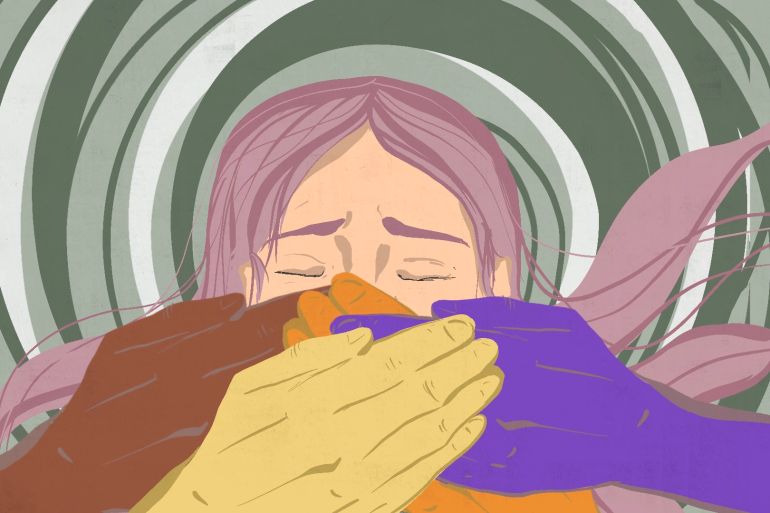
In 1985, then-US President Ronald Reagan implemented the Mexico City Policy. It blocked US federal funding for foreign NGOs that shared information or counselling on abortion and sometimes birth control and became known, by its opponents, as the global gag rule. It reflected in macrocosm the kind of tyranny that often occurs in the lives of abused women. In 1985, I had been with my abuser, Scott*, for two years.
One night, not long after I had stopped taking birth control pills because they had started to make me feel severely nauseous, Scott insisted we have sex without protection. My period had just ended, but I knew my body and could feel a specific cramp that indicated I was ovulating. Scott told me I didn’t know anything about “how this works”. He made me doubt what I knew. He made me believe he knew more about my body than I did. He argued and yelled. He gripped my biceps and shook me until I finally agreed out of fear.
Keep reading
list of 4 items‘His steel toed boot plunged into my ribs’
Five steps to leaving an abusive relationship
The price of the false or non-apology
Six weeks later, as I stood in my doctor’s office, I prayed she would tell me I wasn’t pregnant. I could hear her voice, but I was staring out of the window. I lost myself right there in the examining room. I was in the clouds, flying high, flying fast, heading north in my mind, past Loon Mountain and Saint Johnsbury, into Canada. I wanted to be anywhere but in my body.
I left the doctor’s office in a daze. Scott was at home waiting for the results. But I didn’t want to go home, so I put the truck in gear and drove west, over the border into Vermont. Although I was alone, driving the truck, I felt like I was not even in it. I was out of my body, floating somewhere in the sky.
It is not that I just did not want to go home at that moment. The truth was I did not want to go home ever. If only I could just keep driving. I did not want this pregnancy. I could not subject a baby to Scott’s irrational and unpredictable anger. I knew I would never be able to keep a baby safe.
By the time I was 12, I knew I did not want children. I had learned by then that parents are not capable of protecting their children from tragedy. By that age, I had been molested by an uncle, a family doctor, and a babysitter’s teenaged son. On top of that, my oldest brother had drowned when he was nine. I was already convinced that we were in this life alone and unable to count on anyone but ourselves. I never dated until college, and then, rarely. In fact, I did not have consensual sex until I was 25 years old. Twenty-five, and falling in love with a man I had no idea would abuse me for the next several years.
I pulled off the main road and parked next to the Connecticut River. It was mid-July, but I felt cold to the bone. I picked up the pamphlets on nutrition and pregnancy expectations the doctor had stuck in my hand before I left her office. There was also a handwritten note with two phone numbers on it. She had told me during my exam that at that time abortions were not available in New Hampshire. How did I not even know that? If I decided to have one, I would need to travel to Boston or central Vermont.
And I was one of the lucky ones. I was white; I had a job. We had a vehicle. Even though Scott and I often struggled to get enough money to pay the bills, we were in a position that afforded us the option of an abortion. We also had parents who would assist us financially when needed. If I chose to have an abortion, I could both raise the money to pay for it, although I would lie about the reason, and be able to drive out of state to receive the service. Many women in the state would have no choice. Even if they had access to the money, public transportation in rural areas of New Hampshire was often non-existent.
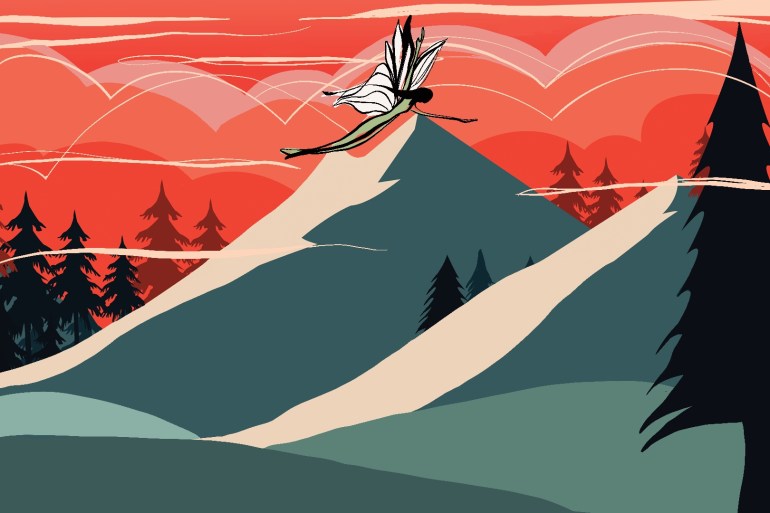
I drove some more through the back roads of Vermont and daydreamed about getting a phone call from the doctor saying it was all a big mistake. That the test results were wrong. That I was not in fact pregnant, so not to worry.
My appointment had been at 10am. It was evening by the time I arrived home. I had no idea what to expect when I walked through the door. That was the case every day. But add a pregnancy, and believe me when I tell you, I was terrified. Normally, if I had been gone all day without calling there would be a huge fight and I would be left with cuts and bruises. But Scott had realised by the time I returned that I was pregnant. And for that one day, he was supportive. He held me as I sobbed. He said he would agree with any decision I made.
By the following day, his attitude had changed. He was angry, dismissive, and unwilling to discuss the situation. He did offer one option when I got out of bed. “I know you’re confused about what to do,” he said. “But I can push you down the steps a few times and you’ll miscarry.” While a miscarriage felt like the best alternative, mainly because it would free me from having to make a decision, that was not something I was willing to attempt.
Some abusers exert control over their pregnant partners by forcing the woman to have the baby or by forcing her to have an abortion. When I say “force”, I am not exaggerating. Abusers can and do use their fists, their words, and their control over the family’s resources to ensure their desired outcome. But, in my case, Scott lost interest in the outcome and became fixated on a past relationship, some 20 years earlier, in which his high school girlfriend had fallen pregnant and her father had ordered her to have an abortion in the family living room. Scott was never allowed to see her again.
After he told me that story, his control, intimidation, and manipulation came through cruelty: silencing me, shaming me, ignoring me. Even though he had previously said he would support any decision I made, he now threatened to tell everyone I knew if I had an abortion.
He said I had it easy. He said he did not want to hear my concerns. He used his power to gag me into submission and silence, and later, to refuse to allow me to seek outside help. I had never felt more silenced or isolated in my life.
I had always believed in a woman’s right to choose, and still do. But I had never wanted to have to make that choice. I did not want to tell anyone because I feared they would judge and shun me as Scott had. So, when he threatened to tell my brothers and co-workers if I had an abortion, I was terrified. He had gagged me just as if he had stuffed my mouth with a wad of cloth.
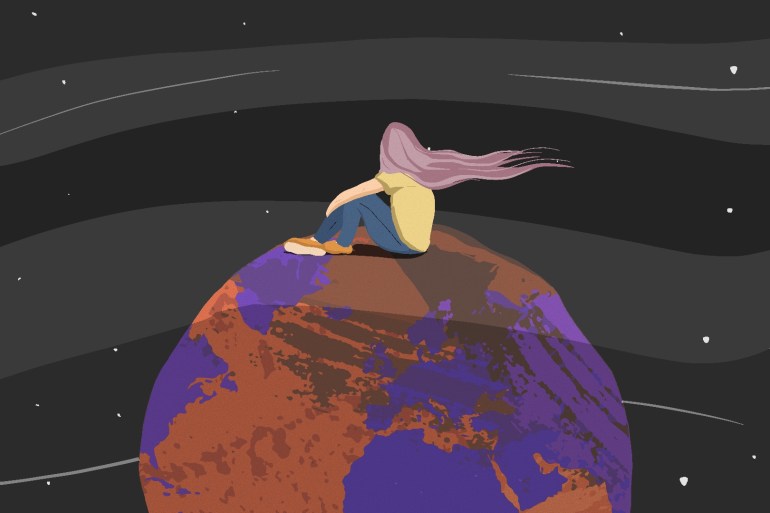
Two to three weeks later, I woke one morning alone in bed. Even before I moved, I knew something was wrong. The previous night I had felt the fullness of early pregnancy. But now I knew I was no longer pregnant. When I sat up, I saw the pool of blood: black and dark red, and not just fluid. There was a thick mucus and what I would soon learn was foetal tissue.
In my doctor’s office a couple of hours later, she examined me and said she couldn’t feel anything in my uterus. She diagnosed a miscarriage.
Back at home, I stood in front of the mirror, naked and skinny, my thighs stained with the remnants of red and dark brown blood.
I did not know how or what to feel. In a day or two, I would feel the relief of not having to make a decision, the relief of not bringing a child into the violence of my life, the relief that I could call the abortionist and say “no need”. But standing there in front of the mirror, all I saw was a lost and confused teenager, not a woman on the verge of turning 30.
I waited for Scott to return from his day trip to Boston where he’d gone to see a quack doctor who gave him an opioid prescription every month even though Scott did not need it. I waited to tell him. As the time passed, fear rose up my spine. I never had a clear idea how Scott was going to react to any situation. But when he arrived home hours later, all he said was “good” – and then turned on the television.
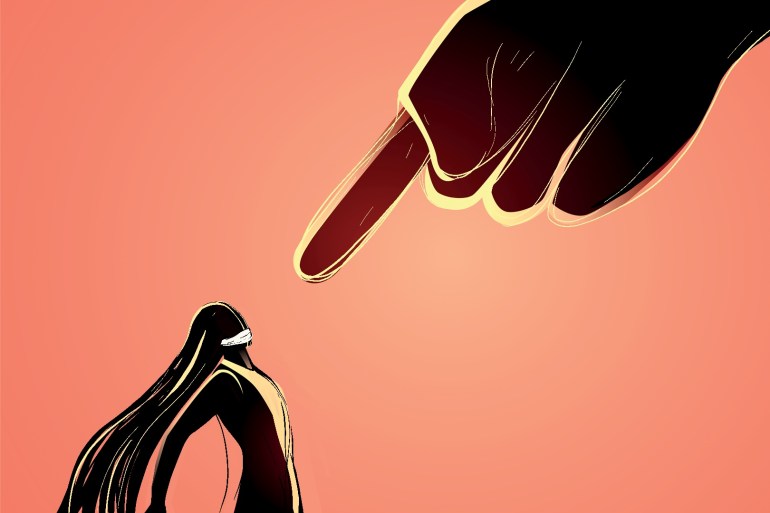
The weeks after the miscarriage I spent in bed mostly pretending to read. I lay there alone, staring out of the window at birch leaves and treetops. I had received the required D&C to clear any remaining foetal tissue from my womb. But I stayed in bed, vacillating between grief and relief. On top of that, I was overcome with guilt for not wanting this child.
After a while, feeling depressed and desperate, I began searching for therapists in the phone book. Scott came into the bedroom and asked what I was doing. When I told him, he grabbed me by the biceps and lifted me up off the bed. He shook me and screamed, his red face glaring. “We are not wasting money on a therapist. If you need to talk to someone, you will have to talk to me.” He shook me some more then threw me back on the bed. Pointing his finger at me, he yelled, “Do you understand me?”
Crying, I nodded that I did. When he left the room, I crawled under the sheets and sobbed. I looked down at my own skin. The permanent bruises on my biceps. Skin is meant to protect, and my skin was rebelling, sending me a clear message. A warning I still refused to hear. The only thing I was sure of at that moment as I cried myself to sleep was that this miscarriage was a gift. No child should have to listen to Scott’s anger or feel Scott’s fists.
It was clear to me that no government agency could have kept my baby safe had she lived, except by taking her away from Scott – and thereby away from me. The right to an abortion is not just a political or religious issue. It is not simply a concept to argue over. It is interwoven with individual choices, concerns and circumstances.
After my miscarriage, Scott continued to refuse to use condoms. Not getting pregnant was “my problem”. I did not want to go back to the month-long nausea that birth control pills caused me, but Scott again abused his power and exerted his control. His intimidation quickly wore me down. Feeling sick most days was better, I believed, than the fists and fights.
But in addition to returning to birth control pills, I slowly saved earnings from my waitress tips for a secret emergency abortion fund. Scott had dangled the threat of telling people like a concealed gun or an invisible fist, so my hidden money stash allowed me the option of an abortion behind his back, should I ever find myself in that situation again. Although I never actually needed it, knowing it was there at the bottom of my dresser helped me breathe easier. It helped me believe I had a little control over my own life. But that was a privilege – something many women would never be able to do.
Four years later, when I was seriously considering leaving Scott after a particularly violent attack, he kept trying to coerce me into having a child. I was petrified. He was trying to tie us together when I was trying to figure out how to get away. I knew if I had a baby, I would be connected to Scott for the rest of my life. The thought of being court-ordered to have a relationship with him because of a shared child was daunting.
In late January 2021, US President Joe Biden rescinded the global gag rule, but its use is cyclical – Democratic presidents revoke it and Republican presidents reinstate it. And just as Biden was removing it in the US, in Poland the most restrictive abortion bans in Europe were being introduced.
A gag is a device used to keep someone from speaking. It is a perfect symbol for oppression against women and women’s reproductive rights. Scott’s fists and threats were used to gag me. In fact, all my life, men have tried to silence me – my abusers, my work supervisors, my government.
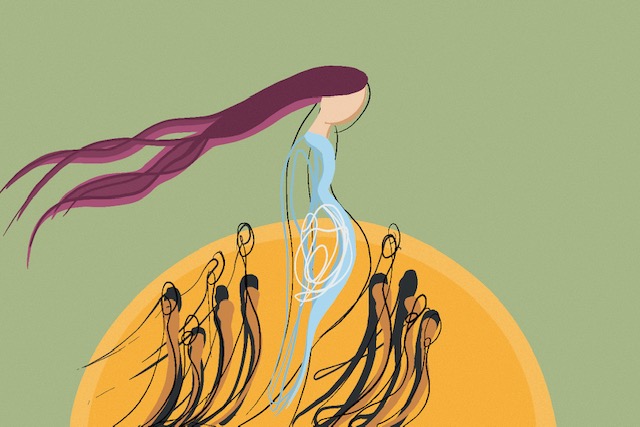
Decades later, I still think about my miscarriage and remind myself how old that little human would be now. I have had two brothers die and, now, my parents. Visiting their graves has always brought me great comfort. I read them poetry, leave bird feathers, pour their favourite libations over the ground where their bones and ashes lie. And if I am unable to get there, I create a ceremony wherever I am. I set up an altar for them: on their birthdays, death anniversaries, or if I find myself missing them very badly. I set out candles, incense, pictures, and objects that remind me of them.
I have done this to help ease my grief with my miscarried child, the one too underdeveloped to have a body, the one I refer to as Emma. And this name, until right now, has been a secret. I think there is only one person on Earth, a healer I once worked with, whom I have ever told that I named my miscarriage. I kept the naming a secret, out of shame, out of fear of being belittled, out of my own confusion at having to explain how I deeply loved someone I never met, except as blood and mucus.
When we do not take into account a woman’s individual story, that it is her personal human right to know the best choice for herself, then we strip her of her agency, her voice. Her trust in herself and the world. I wish I’d had the courage when I was pregnant to seek support from female co-workers. I would later learn that one of the waitresses I knew had lost a child to SIDS two years earlier. She could have been a real source of wisdom to me. Someone to help me wrap my head around such loss.
Even now, as I write this, my stomach is in knots. I am not taking deep breaths. I am just trying to “get through it” so I can bury the feelings again. In fact, there are people I know who I hope will never read this. I am still not comfortable having to explain myself. However, I believe those of us with the privilege of speaking out must do so. Too many women are silenced. Too many women will never be able to share their stories. Let us each consider our talents. How can we contribute? I can write about my experience. I can and do share my story. I lead workshops to assist other women in telling their truths. It is not a lot; it is not enough. But it is something. It is a step. It is something I am good at, coaxing words out of those who have been silenced.
There was a time when it was not safe for me to write my stories. There was a time when my abuser would “catch” me writing and confiscate my journal. When he would read aloud in front of me my dreams of a different life. When he would rip my pages to shreds in front of my face then proceed to throw me at the walls. Because speaking truth is not always safe.
*Name was changed to protect the privacy of the abuser’s family.